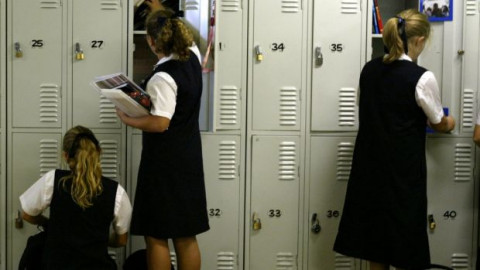
Pallavi Singhal
A primary school student with autism was restrained by teachers and locked in a time-out room for more than an hour, during which time the student wrapped an electrical cord around their neck, a NSW Ombudsman's report reveals.
A teacher standing outside the room ignored the student during the isolation, despite instructions that the student was not to be restrained and was to be checked on after three minutes if placed in time-out.
Another primary student with a disability was locked in a time-out room for three hours, contrary to Department of Education guidelines and without any risk assessment, incident recording or reviews.
These are two of many incidents referenced in a damning Ombudsman's report on behaviour management practices used by public, Catholic and private schools across the state. Many of the students affected have disabilities or have faced trauma and significant disadvantage.
The report finds that the use of isolation with minimal oversight or guidance from the department or other school authorities, the use of physical restraints even when there is no real threat to teachers or other students, and the use of suspension or expulsion when other remedies would be better suited remain prevalent at both government and non-government schools.
Deputy Ombudsman and Community and Disability Services Commissioner Steve Kinmond raised questions about whether these practices are being conducted lawfully and said they "provide a litmus test on whether an inclusive education system is in place", at a parliamentary hearing on Friday.
Another major area of concern identified in the report is children in out-of-home care, who are identified as having high and complex needs. Department of Education policy requires that schools develop an individual education plan for these students, but an investigation of 229 OOHC children enrolled in public schools found that only 26 are recorded in department systems as being in OOHC.
"These kids are not getting a decent education," Mr Kinmond said.
"You look at NAPLAN results, you look at suspension records you look at expulsion records, non-attendance records, partial attendance and the like. But if you haven't got the data system telling you that these kids are in out-of-home care in the first place, how do you actually track their performance and outcomes?"
The report found a significant number of OOHC students are missing a large proportion of the school year for reasons other than illness. Of a sample of 295 school-aged children in OOHC, the report found that 43 per cent missed 20 or more school days in 2016. The group missed an average of 88 days, which is 44 per cent of the school year.
The report also looks critically at the inappropriate use of suspensions and expulsions by schools, noting that "suspensions are sometimes used to give staff and other students a break from a particular student's behaviour".
It includes concerns that students with disabilities are being caught in a "cycle of suspension, partial attendance, and the parent being called to pick up the child early", despite evidence that suspensions are linked to poorer academic achievement, lower retention and increased involvement with the youth justice system.
Katriona Edwards said her son Connor, 6, who has autism, ADHD and anxiety, was suspended seven times during the 18 months he attended East Maitland Public School.
"Two of those were 20 days long," Mrs Edwards, "He had a warning of suspension within the second week of being at school and he was suspended within the first month.
"On the second day of school, my worst fear of him going to school was realised, he'd run out of school and into the street. He escaped three times in the first week and got a warning of suspension for absconding, which was a known risk for him."
Mrs Edwards decided to homeschool Connor after his seventh suspension, and says his behaviour has improved significantly since then.
"I just don't think the teachers had the knowledge," she said.
"At the initial warning of suspension, they said they had done everything they could do, but none of the strategies recommended by his therapist had been implemented."
The Ombudsman's report finds that there is "limited expertise" among school staff in dealing with students with behavioural issues, and recommends mandatory professional learning and training for principals and school executives.
It also recommends new arrangements for monitoring school practices and the establishment of a reference group comprised of key advocates, parents and carers and other stakeholders to look at structural issues and interagency models.
"This is a very powerful report and it's very critical of the NSW Department of Education, especially about restrictive practices, the amount of breaches they reported and incidences when time-out rooms have not been used in an appropriate way," said David Roy, a lecturer at the University of Newcastle's school of education who was approached by the Ombudsman during the preparation of the report.
"There needs to be attitudinal change at the leadership level and the most vulnerable in our society need to be listened to," Mr Roy said.